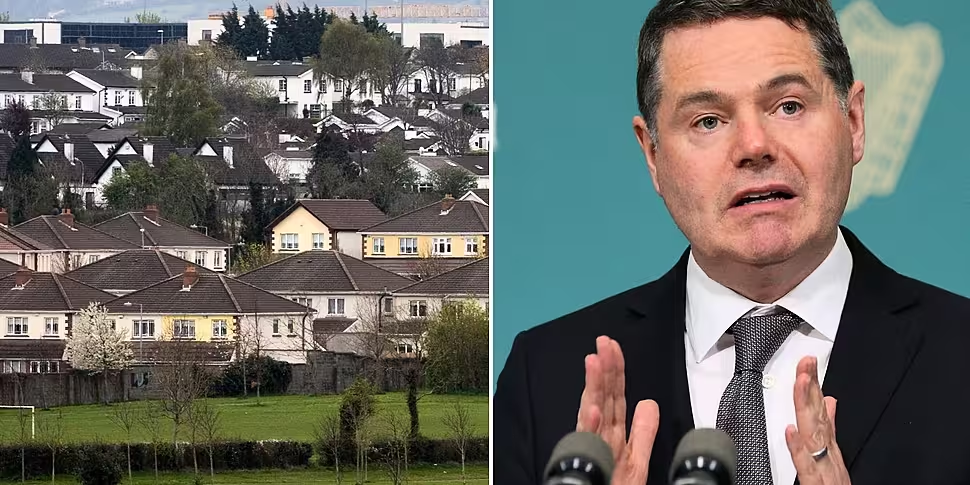Thousands of homeowners are facing increased Local Property Tax bills from later this year.
It comes after Cabinet signed off on proposed changes that will see tax charged on properties built since 2013 for the first time.
Homes will also be revalued in November, and around one-third of homeowners will see their bills increasing by at least €90-100.
The Department of Finance estimates 11% of people will see a decrease in their property tax bill; 53% will stay on the same rates; while the new bands will mean increases of up to €100 for a third of households.
The proposed changes have been labelled 'crazy' and 'bizarre' by the Irish Mortgage Holders Organisation, with the group saying it's the wrong time for the measure as people are still experiencing the impacts of the pandemic.
However, the Government has insisted the changes to the tax are being done in the interest of fairness, and that a majority of homeowners won't see increased bills.
Conall Mac Coille, Chief Economist with Davy, spoke to Newstalk Breakfast about what exactly these changes are likely to mean for homeowners.
He noted that the full changes will be announced later today, and the "devil will be in the detail".
However, he explained: “It depends what your property value is, but roughly speaking a third of existing households who pay the property tax are looking at an increase of around €90.
“If you’re unlucky, you may be part of the small 3% perhaps - who are expected to see a larger increase of €180.
“Then there are roughly 100,000 households who either bought a new-build house since 2013 or who were a first-time buyer in 2013… they will pay property taxes for the first time.”
Mr Mac Coille said the lack of Local Property Tax for that final group of homeowners was a “legacy of the policies rolled out during the EU / IMF programme” - a measure that was introduced as an incentive for people to buy homes.
He said increasing property tax is “hardly a vote winner”, so the decision that a revaluation exercise will happen in November is something of a surprise.
In terms of the property tax rate, he explained: “The rate is 0.18% currently - and local authorities can adjust that up and down slightly if they want to.
“If you look at the Residential Property Price Index from the CSO… [prices are] up 90% from 2013. There’s been a lot of headlines around people’s bill might go up by if that 90% was applied across the country.
“As a result, it looks like the rate is going to be 0.1% - house prices have gone up, so they [will] just reduce the rate so the impact on people’s tax payments is contained.”
He said the tax bands are likely to be widened at the lower-end, so people with lower incomes and lower property values are less likely to be affected.
It's therefore people who own higher-valued properties are the ones most likely to face an increased bill.
Mr Mac Coille added: “Overall this measure is intended to raise €70-80 million - that sounds like a lot of money, but in the context of the €3.5 billion supports that were announced yesterday it’s very, very small.
“Really we’re going to have to consider tax rises in the future to balance the books… once we come through this. This, in the grand scheme of things, is a very, very small tax increase.”
Councils have the ability to increase or reduce the Local Property Tax rate in their area by up to 15%, and the Finance Minister has warned that those who reduce the tax could find it harder to get extra funding from Government.









